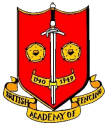![140252745_1781828841985000_2072517198839397143_n[1]](https://baf-fencing.com/wp-content/uploads/2021/01/140252745_1781828841985000_2072517198839397143_n1-e1611916136259-500x381.jpg)
What makes a coach? Are coaches remembered by the number of champions? Is this the defining criteria?
Well, David certainly achieved success. Many of his pupils reached high levels of competitive Fencing; however, coaches are not to be judged on competitive success alone. Many other attributes make a good coach.
As a coaching colleague, I have known David for many years, never a close friend, but an appreciative observer and working colleague.
I first met David at a long-forgotten venue, The Granby Halls in Leicester (now the rebuilt Leicester Tigers’ home). This venue was the second home of The Leicester Open Tournament, a six weapon open that filled three large halls, and at the time, this tournament, believe it or not, was sponsored by a Brewery with free beer served throughout the day. Sunday Fencing was interesting! It was also in the days of full repêchage.
David had started coaching at Evesham and Stratford and brought along young junior sabruers to participate in this large competition. He was very enthusiastic (a trait that never lost its vigour throughout his life) and always insisted that the organisers ran a plate competition. If the repêchage was overrunning and the organisers said no, David did not take this answer at face value and set about the organisation and running of the plate competition himself. As a junior helper of the organising committee, I was often ‘volunteered’ to offer support. David’s active determination to support and develop Fencing was born in these early days, backed up by military organisational training.
The development of so many young fencers based in and around Stratford bares testament to David’s approach. Many fencers achieved great success (Louise bond Williams, the complete U17 and U20’s England sabre team), etc. It is mainly the success of guiding all those young adults through to maturity using his unique benevolent pupil self-reliance approach that was most striking, which served them later in life.
David spent a season coaching at The Sydney Sabre Club and coached at Eaton, but Stratford was his spiritual home.
To aid personal development, David sought knowledge, both applied and theoretical, and began a lifetime of pedagogical research in some depth, initially studying the Hungarian system. David was never afraid to test or question methodologies and always cast doubt on ‘the definitive method.’
From time to time, ill health curtailed sword in hand coaching, but his pedagogical acquisition knew no bounds.
To formalise his research, David took an MPhil at the University of Birmingham, and his published work:
Kirby, David Michael Julian (2015). From Piste to Podium: a qualitative exploration of the development of fencing coaching in Britain. The University of Birmingham. M.Phil.
David inevitably became involved with Coach Education, organising and running BF Courses from KES at Stratford. Often critical about the BF pre-course organisation David often remonstrated with BF as he always expected organisational clarity.
Despite successfully running BF coaching courses, David was always a BAF firm supporter, and I will miss his searching questions at our AGM’s.
I believe that David was often misunderstood within the Academy who did not fully utilise his pedagogical knowledge.
As you would surmise, our education approaches did not always align, but we both enjoyed the debate that had one common aim – developing coaches that can develop fencers.
Please reread David’s articles in the Academy News and read David’s MPhil paper noted above. This action would be the best testament and reminder of our thoughtful colleague.
Prof. Graham Stretton
Tiddlywinks… Memories of David.
I have known David Kirby for the past few years, and over that time he has been a good mentor. I have been a regular attendee at his Stratford coach education sessions, and although David could “talk the hind leg off a donkey” and loved a good argument (as befits an MPhil), he was also a good teacher who tried to lead you to change, not enforce it. During the time that I knew him, David’s poor health had already reduced what he could do sword in hand, so he concentrated more on the theory of how to teach. David’s passion for encouraging us to become better coaches through thinking about what we were doing, & challenging accepted wisdom, enabled us to gain better understanding of why we were doing it. This was, and still is a fantastic example to me, I will sorely miss him and his help and advice.
Kevin Nelson.
